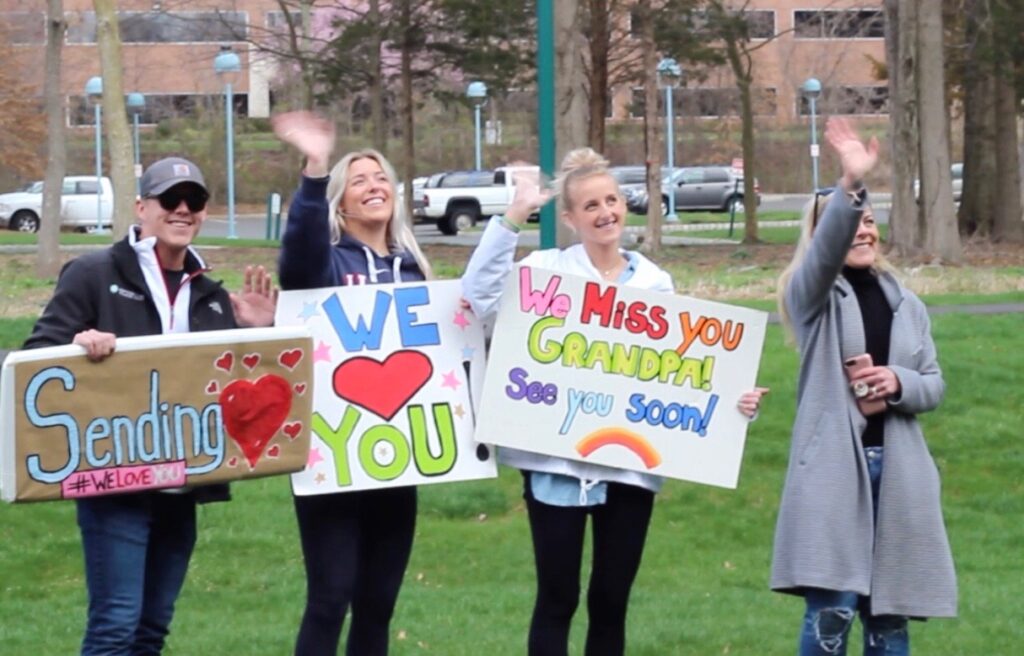Cheryl’s father already lived in a long-term care facility when he was diagnosed with dementia. As an only child, Cheryl took on the responsibility of caring for and visiting her father alone. She came across Conversations to Remember in a Facebook support group, and her life — and her father’s — was changed. “It gave me a little peace of mind, because I feel like it gave him some purpose back,” she said.
Cheryl’s father, previously an educator, was an independent man who cared about his work very much. While battling cancer, he was coincidentally diagnosed with dementia, and Cheryl said he struggled with his sense of identity and purpose.

Upon starting calls with Conversations to Remember’s student volunteers, Cheryl shared that her father’s outlook improved. She said that her father appreciates the students talking and asking questions about college, classes, and homework. “It makes him feel like he’s important, like his advice is making a difference in their lives,” she said.
When the COVID-19 pandemic hit, Cheryl struggled with transitioning to virtual visits and limited in-person time with her father. It was especially difficult when she couldn’t explain to him the reasons such measures were taking place. Cheryl and her family used FaceTime to keep her father company during lockdown when they couldn’t be with him physically.
Conversations to Remember came into the picture later in the pandemic. At first, Cheryl said, she was nervous about her father participating in the calls. “He struggles so much and he has so much frustration with the condition he’s in,” she said about her father. She said that, though he struggles with dementia, he is still able to hold coherent, thoughtful conversations about topics he enjoys. However, he gets agitated when he forgets things.
The student volunteers on her father’s call impressed Cheryl so much that she reached out to Eve, the executive director, directly. “He was having one of those quiet days, and there was dead air,” she said. “But the girls would just so quickly think of something to ask. I just can’t even tell you how impressed I was.” It’s a story she tells often, including, for example, to encourage her daughter in a college public speaking class.
“This is so important, and not just because I’m a huge advocate for people with dementia,” she said. “It’s important that young people can talk to anybody — any nationality, any age. You have to be versatile in the world, since not everybody is going to talk about what you want to talk about.”
